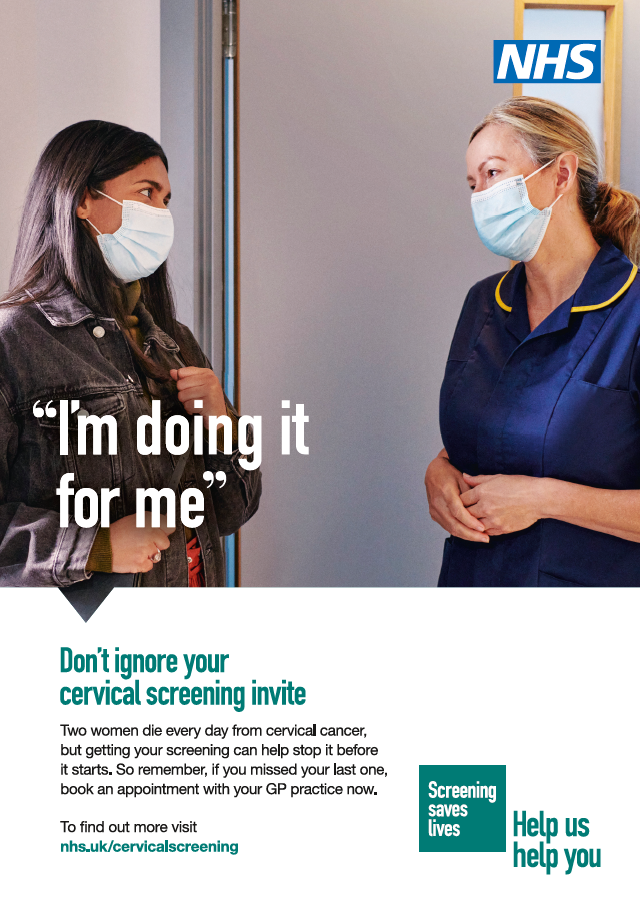Clinics We Offer
Measles can cause severe complications – don’t risk your child’s health or the health of others. Book an appointment with the nurse at the surgery.
see links for further ionformation on measles https://www.nhs.uk/conditions/measles/
Measles outbreak could spread warns UKHSA Chief Executive - GOV.UK (www.gov.uk)

We have a range of clinics and services available at Morrab Surgery including:
- Postnatal and Baby checks
- Cervical smears
- Child Immunisations
- Echocardiogram
- Family Planning
- NHS Physiotherapy by Ascenti (currently only dealing with necks and backs. Please see your GP for details.
- Young Persons Clinic - C Card registration

Chronic Disease Reviews:
- Asthma
- Chest Conditions
- Coronary Heart Disease
- Dementia
- Diabetes
- Epilepsy
- Heart Failure
- Hypertension
- Mental Health
- Stroke and Others
Cervical Screening
- Cervical screening (a smear test) checks the health of your cervix. The cervix is the opening to your womb from your vagina.
- It's not a test for cancer, it's a test to help prevent cancer.
- All women and people with a cervix aged 25 to 64 should be invited by letter
When you'll be invited for cervical screening in England:
Age When you're invited
Under 25 Up to 6 months before you turn 25
25 to 49 Every 3 years
50 to 64 Every 5 years
65 or older Only if 1 of your last 3 tests was abnormal
You'll be sent an invitation letter in the post when it's time to book your cervical screening appointment.
- Your letter will tell you where you can go for cervical screening and how to book.
- Most cervical screening is done in a GP surgery by a female nurse or doctor.
- In some parts of England, you may be able to go to a local sexual health clinic instead.
- Call your GP surgery to book an appointment with them. You might be able to book the appointment online.
During cervical screening a small sample of cells is taken from your cervix for testing.
- The test itself should take less than 5 minutes. The whole appointment should take about 10 minutes.
- It's usually done by a female nurse or doctor.
- Before starting, they should explain what will happen during the test and answer any questions you have.
Your cervical screening results are usually sent to you in a letter.
- Your results letter will explain what was tested for and what your results mean.
- Sometimes you'll be asked to come back in 3 months to have the test again. This does not mean there's anything wrong, it's because the results were unclear. This is sometimes called an inadequate result.
You can find more information including what happens at a cervical screening appointment and what your results mean on the NHS website Cervical Screening

Screening for Newborn Babies
Your newborn baby will be offered some screening tests in their first 6 to 8 weeks.
Why newborn screening is offered
Most babies are healthy and will not have any of the conditions the newborn screening tests are looking for.
But for those babies who do have a health problem, the benefits of screening can be enormous.
Early treatment can improve their health and prevent severe disability or even death.
The screening tests are quick and simple, and will not harm your baby in any way.
It's recommended that your baby has the tests, but you can decline them if you wish
Newborn physical examination
Every baby is offered a thorough physical examination soon after birth to check their eyes, heart, hips and, in boys, testicles.
This is to identify babies who may have conditions that need further testing or treatment.
The examination is carried out within 72 hours of birth and then again at 6 to 8 weeks of age, as some conditions can take a while to develop.
Find out more about the newborn physical examination
Newborn hearing screening
The newborn hearing test is done soon after your baby is born.
If you give birth in hospital, you may be offered the test before you and your baby are discharged.
Otherwise, it will be done by your health visitor or another healthcare professional within the first few weeks.
Find out more about the newborn hearing test
Newborn blood spot (heel prick) test
The newborn blood spot test involves taking a small sample of your baby's blood to check it for 9 rare but serious health conditions.
When your baby is about 5 days old, a healthcare professional will prick your baby's heel and collect a few drops of blood on a special card. This is sent off for testing.
The heel prick may be uncomfortable and your baby may cry, but it's all over very quickly.
Find out more about the newborn blood spot test